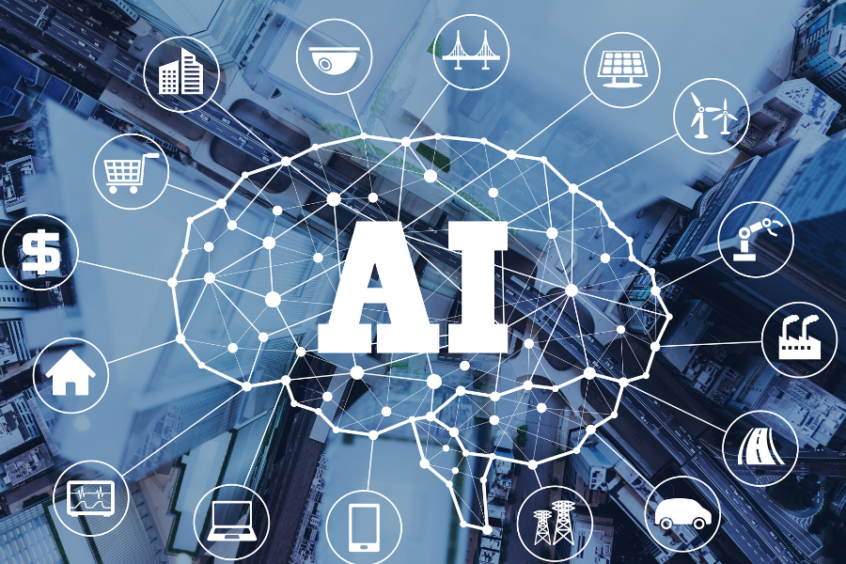Artificial Intelligence is beginning to impact almost every area of life, from applications on our phones and computers to a bevy of workplace management tools, and much, much more. In some cases, AI is even being used to improve AI technology! And you can expect to see even more AI in your day to day life in the coming years, including at work. In fact, according to Forrester (a market research company focused on the potential impact of technology), 2020 will be the year companies focus on the value of AI and pursue it by increasing adoption, learning through mistakes, overcoming issues, and embracing new realities.
Human and AI Cooperation is the Key to Success
AI can provide a host of benefits to the workplace, including cost savings, revenue growth, quality control, and improved customer experience. Because of this, you can expect to see increased human and AI cooperation in the workplace. AI will continue to take over more and more of the repetitive work we do on computers, like filling in forms and generating reports. With AI, our machines can watch what we do and learn to do it for us more quickly and efficiently. This Robotic Process Automation (RPA) takes important but time-consuming tasks off our plates, giving us more time to tackle complex, creative, strategic, and interpersonal work – things that AI can’t do (yet).
We will also start to see an increase in personalized customer experience in real-time, as AI allows companies to quickly learn consumer online behavior and predict what they will want to see. This automated decision-making by AI will continue to become more common as available data becomes more accurate. Better data means better real-world simulations in the digital world, making AI decision-making not only possible but more reliable and more powerful as well.
According to the International Data Corporation (IDC), by 2022 75% of companies will embed intelligent automation into technology and process development, using AI-based software to gain insights that will guide innovation. And by 2024, AI will be integral to every part of the business. AI will redefine the user experience by enhancing user touches with computer vision, speech, natural language, and augmented (virtual) reality. We will begin to see AI, computer vision, and natural language processing embedded in every type of product and device.
Need for New Skills
As exciting as this is, it will certainly mean change for employees. The concept of the “workforce” will continue to slowly expand to include a growing labor pool of AI-enabled RPA bots and chatbots. By the end of 2020, Forrester predicts that conversational AI will power almost a fifth of customer service interactions (and you can expect that number to continue to rise in the coming years).
As AI technology becomes increasingly available and reliable, the need for employees to adapt will increase as well. By 2024, the IDC predicts that 75% of businesses will invest in employee retraining and development to address the need for new skill sets and ways of working as a result of adopting AI. Updating their skill sets will be crucial for employees as AI becomes more integral to our workplaces.
High Reward = High Risk and the Need for Oversight
Considering how much data they utilize, these emerging technologies can be high-risk. With the increased use of AI comes a greater potential for glitches and resulting harm. Incorrect use of facial recognition, over-personalization, and deepfakes are examples of ways data and AI have malfunctioned or been misused already. Customer experience applications will continue to become hyper-personalized with the use of a variety of data and reinforcement learning algorithms.
But even with these risks, it’s unlikely that the adoption of AI will slow down this year. Instead, according to Forrester, such concerns will highlight the importance of creating responsible AI systems overseen by sound governance that provides accountability. IDC predicts that by 2022, 70% of G2000 companies will have formal systems to monitor their “digital trustworthiness”, as digital trust becomes increasingly critical to corporate success. This need for oversight will also have many more companies adding CDAOs (chief data analytics officers) and CIOs (chief information officers) to their teams of senior executives.
As AI continues to change the face of our world, we will all need to adapt to keep up. And nowhere will this be more evident than in our workplaces. If you’re feeling lost wondering how to navigate this ever-changing landscape, you’re not alone. Contact us today to see how we can help your business embrace all the benefits of AI in the coming years.

